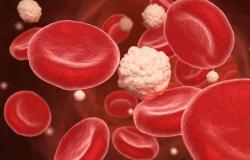Have you ever heard of goiter? Do you know what this problem associated with the thyroid is? If you still have questions, here are the main questions and their answers associated with this health problem.
What is goiter?
The word goiter refers to a hypertrophy of the thyroid gland, that is, an abnormal enlargement of this gland, which does not necessarily mean that there is a malfunction, as it can, in fact, occur in a thyroid that produces excess hormones ( hyperthyroidism) or too few hormones (hypothyroidism), but also one that produces the right amount. What this indicates is that there is something that is causing abnormal growth of the thyroid.
What is your cause?
One of the most common causes is iodine deficiency. Taking into account that the main activity of the thyroid is to concentrate iodine in the blood to produce hormones, the lack of sufficient iodine jeopardizes this function, which will give rise to a situation of hypothyroidism. In these cases, the pituitary gland in the brain detects the existence of altered levels and sends a signal to the thyroid so that it increases the production of hormones, which results in an increase in its size. A growth that, when abnormal, produces what is called a goiter.
Two other important causes of this problem are Hashimoto’s thyroiditis, an autoimmune disease characterized by an attack on the thyroid carried out by the body itself, and Graves’ disease, to which are added less common causes, associated with genetic defects or related to injuries. or thyroid infections.
What are the symptoms?
Goiter sufferers may not have any symptoms, except for swelling in the lower part of the neck. This swelling, if large in volume, can also cause tightness in the throat, coughing, hoarseness, difficulty swallowing or breathing.
What are the risk factors associated with goiter?
Being a woman is one of the main risk factors associated with this problem, which also includes being over 40 years old, having a family history of autoimmune disease or goiter, having been exposed to radiation as a child or having had radiation treatment to the neck or chest. , having a diet low in iodine or taking certain medications, which can increase the risk.
How is the diagnosis made?
The diagnosis begins with a physical examination, which detects an enlarged thyroid. However, the presence of a goiter indicates that there is a problem in the small butterfly-shaped gland, so it is important to determine the cause of the goiter, requiring thyroid function tests or other tests prescribed by a specialist.
What is the treatment?
Treatment depends on the cause of the goiter, its size and symptoms, but the good news is that there is a way to treat it.






